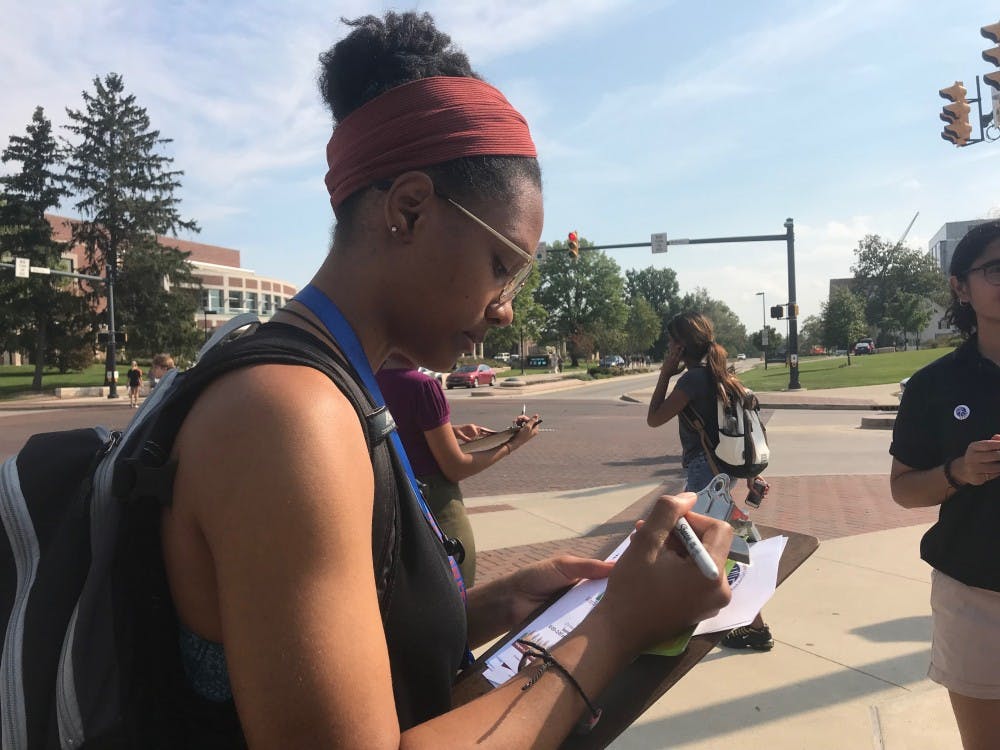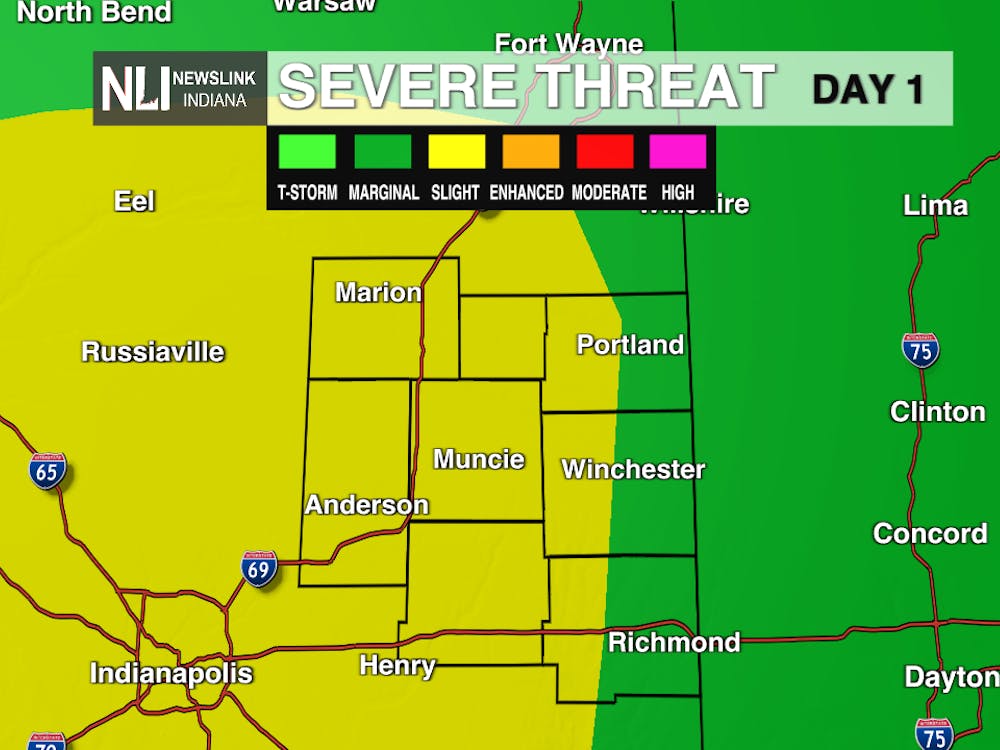How can we work toward a more peaceful future?
That’s the question students answered during #WordsMatterBSU, organized by the Center for Peace and Conflict Studies — the Peace Center for short. The event, which coincides with the United Nations’ International Day of Peace, was held from 10 a.m. to 2 p.m.
“Let’s promote respectful conversation about difficult issues,” was the tagline for the event, said Aashna Banerjee, a graduate assistant for the center.
As an extension of the Southern Poverty Law Center’s original #WordsMatter national campaign, the event aimed to promote respectful dialogue and conversation about difficult issues among members of the Ball State and local communities.
The campaign recognized that words can have great power, according to a press release sent out by the Peace Center.
“We think that people have a right to their view,” said Lawrence Gerstein, the director of the Center for Peace and Conflict Studies. “We also think that there are ways to express a view and to hear a person’s point of view to have more effect.”
Gerstein also said that over the past few years there has been a great polarization in the country between people with extreme viewpoints.
“If we continue to promote the polarization and not do more to enhance understanding, communication and respect between the groups, then we’re going to have more unrest in this country,” Gerstein said.
Participants wrote down responses on a paper cut-out of a hand. The hands were different colors, and will be displayed collectively on campus at a later date.
“The basic idea is that it doesn’t matter what the color of your skin is, we still hold hands,” Banerjee said.
Banerjee said that she ordered 200 hand cut-outs, but it wasn’t enough and they ran out of hands, so they cut out multi-colored paper squares.
Students who signed the hands wrote down how they believed respectful dialogue could lead to a more peaceful future and what respectful dialogue means.
Sophomore General Studies major Ashley Clark said she believes peace can be achieved by trying to understand other people’s differences.
Ball State’s Peace Center promotes non-violence on and off campus through programs directed to students and the Muncie community, according to its website.These programs are focused on peace-related concepts such as mediation, conflict resolution, peace-building and leadership.
“Over the years, we’ve hosted a number of programs to promote diversity in a varied form –– and including dialogue, essential dialogue, between people that might not share the same views,” Gerstein said.
The center also offers students a minor in peace studies and conflict resolution, and an unpaid internship program that counts for credit.
International Day of Peace was established by the United Nations during July 1981, according to its website. Each year, the day has a new theme. The theme this year is “The Right to Peace –– The Universal Declaration of Human Rights at 70.” This year’s theme celebrates the 70th anniversary of the document “The Universal Declaration of Human Rights.”
It claims that certain rights, including the right to life or the right to privacy, are essential human rights all nations should work to achieve, and through this achievement peace can be reached.
“One of the most important things is that often times peace is associated with the absence of violence,” Gerstein said. “I think for me, peace means — equitable distribution of resources, respect and nurturing of our environment, and the right for people to address diverse points of view and engage in diverse behaviors.”
As part of its international projects, the Peace Center will send some faculty to India next month to teach conflict resolution and build positive relationships through the use of sporting events.
Contact Rohith Rao with comments at rprao@bsu.edu or on Twitter @RaoReports. Contact Hannah Gunnell with comments hrgunnell@bsu.edu.





